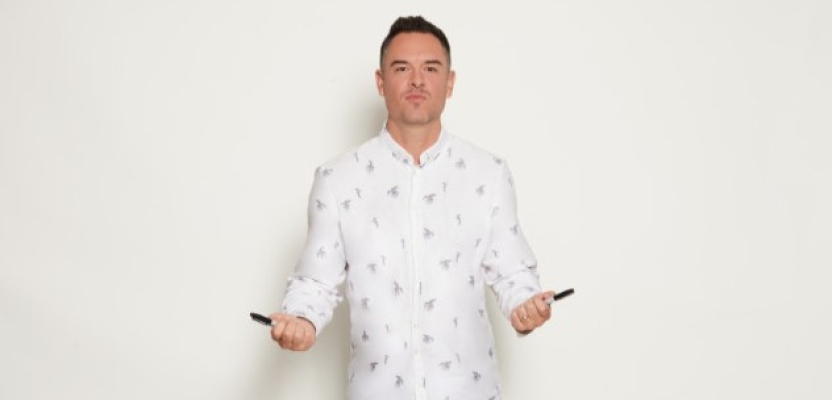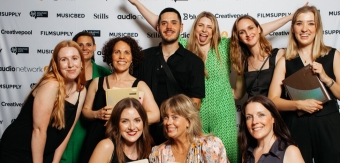Mark runs Sweathead, a strategy training company with a community of 18,000 strategists and a podcast with over 1.3 million listens.
In recent years, he's consulted and trained companies like Wall Street Journal, Twitter, Complex Media, EA Games, The Economist as well as agencies around the world.
In 2020, he published his Kickstarter-funded book "Strategy Is Your Words". It's a 400-page dive into the minds of strategists and builds around a framework he uses called The Four Points.
Tell us a bit about your role! Is there a “typical” day?
I left corporate America seven years ago with the intention of building my life around writing, interviewing, teaching, and talking. So my days and weeks are varied. I’ll spend days writing a book or articles, filming videos for our courses, traveling to do talks in countries like Bulgaria, Ecuador, Peru, Mexico, and Georgia, and, since I’ve started to build a team and sell products online, team meetings, customer service, and operations feature more and more.
What was the biggest challenge in getting to your current position?
I’m not an employee. I started a hip hop magazine when I was twenty. I used to put on music events, write for magazines, put up posters in the middle of the night, and make websites. Agency life gave me a salary and it taught me a lot.
But I need independence, I need control over my own projects, and I want to put things into the world, not just into a creative brief. So, I think, appreciating and benefiting from full-time agency life while struggling with the dynamics of full-time agency life was key.
I’ve also battled mental health challenges, many of which could have imploded me over the years.
What is your personal background and what role did it play in your career?
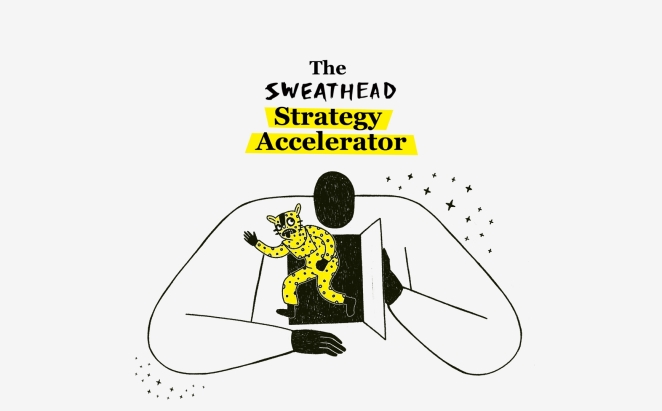
Let me cherry pick the things that seem to have propelled me to where I am. I was taught to read and write young, so words have consumed me from a young age. I got a good education, worked my ass off, and did well, so being a student and forming points of view have held me in good stead in my strategy career.
My family fell apart when I was young and I moved between homes while also having students living with us, and a lot of adults come in and out of our lives, so I’m interested in people but also investigative of them (a coping mechanism possibly due to trying to work out who’s safe to be around).
From a very young age, I would get about Sydney by myself on public transport and, later, I moved between friend groups and suburbs, so I’ve seen a lot of different realities. Starting a hip hop magazine young helped me understand what it’s like to be part of and contribute to a competitive community while also addicting me to publishing.
All of this comes to life in my work now.
What is your biggest career-related win? What is your biggest loss?
At Leo Burnett in Sydney, I had a coffee with a client from McDonald’s. We discussed an idea I had for a campaign they were working on, but I wasn’t involved with. I took it back to the office and it caught on with the leadership and creative department.
It became The NameIt Burger, McDonald’s most successful promotional campaign in Australia ever. I helped a little with the strategy beyond this but it taught me that great ideas can happen on a whim.
Another big win is publishing my book “Strategy Is Your Words” in 2020 during the pandemic after raising $37,000 on Kickstarter. It formed the basis of an entirely new business for me as we all moved to remote work.
My biggest loss is when I stopped publishing my magazine Stealth. It hurt. It still does. I also made some poor career decisions and struggled to stick around in agencies that I felt had low standards, or were too bureaucratic and political.
I joined Leo Burnett New York to help run it and Leo Burnett closed it down a month later. I had a temporary visa with kids in New York so this was stressful. I then ran strategy in an 800-person PR firm. I met some good people but I felt gaslit for most of it.
Which individuals and/or agencies do you gain inspiration from? Do you have any heroes in the industry?
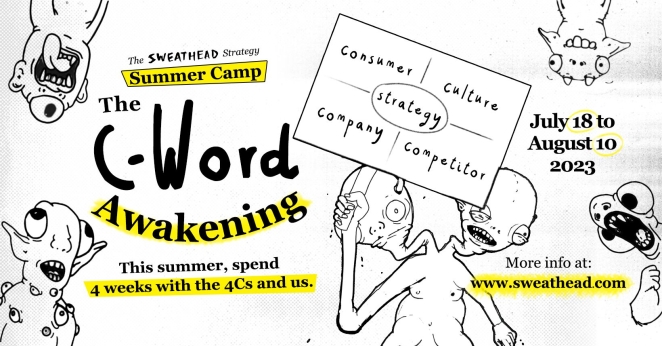
I’m wary of heroes. I met so many famous people when I was young because of my magazine and radio show. I was 20 when I spent three hours with Flava Flav, for example. Figures who’ve affected me in meaningful ways in recent years include Alan Watts, Carl Jung, Julia Cameron, Victor Frankl, and Marlon James.
If you could go back to your teenage years, would you have done things differently? Do you have any regrets?
Oh god, yes. I have teenagers now and I can tell you they aren’t moving between homes, distrusting of authority like I was, going to raves, carrying weapons, worrying about not being listened to, or scared about being jumped on while coming home. Mostly, I hope.
I worked hard at school in-between all of this. It was one of the few stable things in my life and working hard has given me a lot of opportunity. But I could have done with less turmoil, whether it was of my own making or otherwise.
If you weren’t in your current industry, what would you be doing?
When I talk to people about what they’re doing in life, I ask them to think about their verbs. My verbs are write, teach, talk, interview, travel, listen, study, gather, and make. I’ve been a music journalist, a publisher, a lyrics writer, an event host, an event promoter, a book author and publisher, an entrepreneur, a teacher, and a strategist.
I’ve often optimized for what would earn me money, which is a common strategy but not always. So I’d be doing these things in some kind of shape.
What’s your one big dream for the future of the industry?
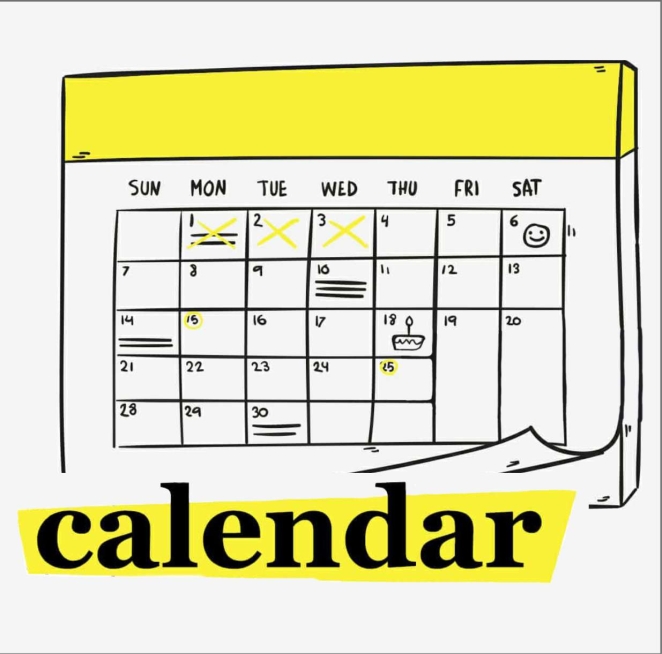
I’d love the advertising industry to be an industry that stops squandering its talent, that nurtures it, and that stops burning out its people.
What are your top tips for aspiring creative professionals?
- A job–like a romantic relationship–cannot complete you.
- It’s critical to work on your own creative projects and not just shove your creativity into a timesheet.
- Bring others along–people are yearning for creative leadership but, too often, creative leaders don’t know how to lead or they just lead their own department.
What are your top tips for other creative leaders?
- Set high and clear expectations. For instance, GUT’s Anselmo Ramos pushes his teams to come up with ideas that need them to call a lawyer because calling a lawyer means that idea has never been done and it’s risky.
- Spend your fight-or-flight dollars carefully. When you operate from a place of fear, you’ll burn out your team.
- Keep your own creativity alive. It’s common for people to move into creative leadership roles and then yearn to have more creative moments in their days.
When you think about your team, what is the thing that matters to you the most?

I want them to feel that they’re doing meaningful work with someone who wants them to grow and wants them to feel respected.
Do you have any websites, books or resources you would recommend?
If you’re stuck in life, read Julia Cameron’s “The Artist’s Way” and Victor Frankl’s “Man’s Search for Meaning.”

